The community will be placed at the centre of MIDI’s Manoel Island Project, the company’s CEO Mark Portelli (photo below) has said during an interview with The Malta Independent.
On 14 March, MIDI, together with the Gzira local council, signed a Guardianship Deed which established a nonprofit foundation to ensure that Manoel Island’s heritage sites, foreshore, and significant green park spaces are restored and preserved for the whole community.
Prime Minister Joseph Muscat, who attended the signing, praised the project, saying that it should serve as a model for the relationship between the community and the investor.
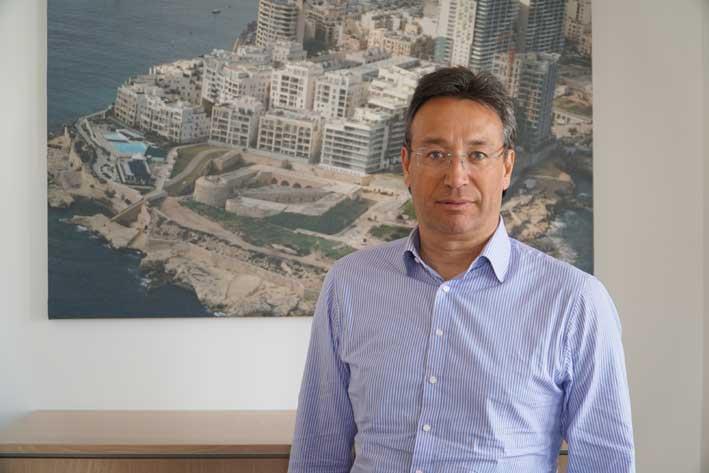
"It is a balance between the natural, cultural, and historical environment which embraces sustainable commercial activity," he said.
Along with Portelli, the Administrative Committee of ‘The Manoel Island Foundation’ consists of four members, Gzira Mayor Conrad Borg Manche, who will act as the Chairman of the foundation, Lawyer Claire Bonello, Deputy Gzira Mayor Ralph Mangion (PL) and MIDI CEO Mark Portelli.
Through the deed, Portelli explained, the Foundation will ensure that the commitments MIDI has bound itself to in the concession, such as ensuring public access to the Manoel Island Public Park, the Foreshore, Swimming Zones, Fort Manoel, as well as the building heights of the residential units that will be developed on the island.

The natural area will be landscaped to deliver an 80,000 square metres public park, while the fort will be designed to become a central attraction that will house galleries, museums, shops, restaurants and a parade ground for open-air events.
Speaking to the newsroom, Portelli stressed the importance of making the project, which is designed by Foster and Partners, as interactive as possible, with the foundation ensuring that the fort will be used for cultural activities which lend themselves to public access.
A hotel, for example, would not be permissible in the area because of its restrictive qualities.
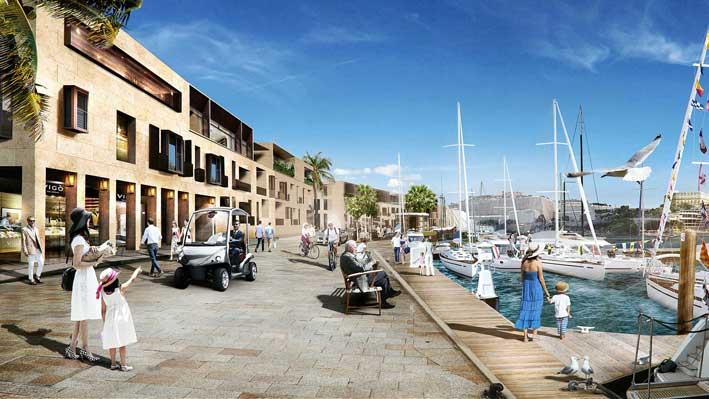
A structure which was formerly a cattle shed will become a centre for commercial activity, with an avenue providing direct access to the foreshore and the marina, and will allow the public to be drawn into the area.
He referenced the Tigne’ Point Pjazza as an indication of how the public spaces within the development would function, insisting that the public’s enjoyment of the area will always be a central priority.
As according to the deed, Portelli explained, the ownership public spaces will revert back to the government once the development is completed. The foundation’s role, he said, will be to continue to ensure that the public areas continue to be maintained for the enjoyment of the general public.

Asked on the selection process for the committee, Portelli said that the deed stipulates that three of the members would be appointed by the council, while MIDI will have a singular representative on the foundation, ensuring that it holds the minority.
The Lazaretto, which will be restored to become a 5-star hotel with serviced apartments, has raised concerns with the public, however, Portelli stressed that this was a restoration project that was detached from the rest of the project and would not be affected by surrounding development.
“The new building is squarely focused on barren land, and the development will in no way impact the restoration works, rather, it will enhance it,” he said.
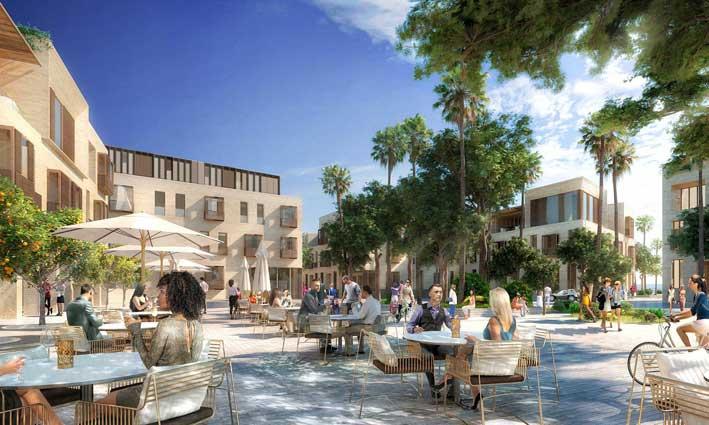
Portelli was also asked whether the Foundation formula, which incorporated the local council and eNGOs, should become the norm and the standard model of future development. He stressed that while he would not comment on other projects outside of MIDI, given the specific needs of every development, it was his personal belief that the model can be very much applied to other projects of a similar size.
With regards to the sustainability of the project, in view of the large-scale development that is taking place in the surrounding communities, Portelli stressed that the Manoel Island project differentiated from other projects, given its focus on low-rise development and community feel.
Following the signing, The Malta Independent has asked the PN to ascertain its position on the set-up of the foundation. In their reply the PN said, “In principle, the Nationalist Party and its local councillors in Gżira are in favour of the establishment of the foundation,” a PN spokesperson explained, “in fact, the Nationalist Party wanted to be one of the foundation’s administrators to have an active role in carrying out this task.”
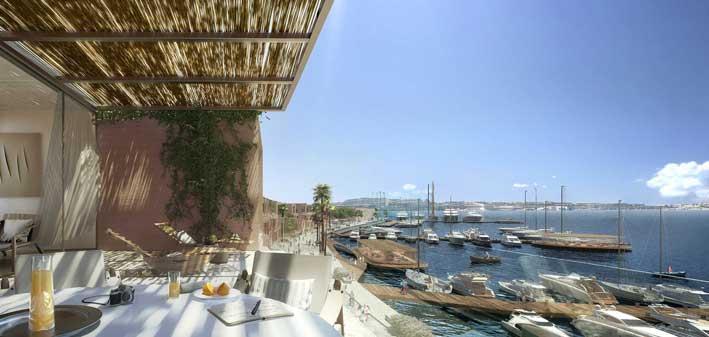
“However, the PN councillors were never aware and/or involved in any of the discussions and meetings that were held and that led to the formation of the Guardianship Agreement and the Statute that regulates the Foundation of Manoel Island.”
PN said that “in actual fact, although the PN councillors attempted to ask questions on the foundation, the answers given were still unclear on certain issues, particularly representation on the administrative committee, and the PN’s motion to be one of the foundation’s administrators was voted down.”
Gzira mayor Conrad Borg Manche’ had rejected these claims, insisting that everyone, including the public, was aware of “our ideas, goals and what we set out to achieve” and that any related documents have always been readily and publicly available.

In fact, Borg Manche explained, lawyer Claire Bonello, who sits on the foundation’s administrative committee, had explained the guardianship agreement “word by word” to councillors in a recent council meeting.
This was further corroborated by Portelli, who said that while they dealt exclusively with Borg Manche, the entire council had signed the resolution placing the mayor as a signatory on the deed.
MIDI was first granted a 99 year concession by previous PN administrations (with the approval of the entire parliament) for the development of Manoel Island, where it has restored the historic fort, by 2000.
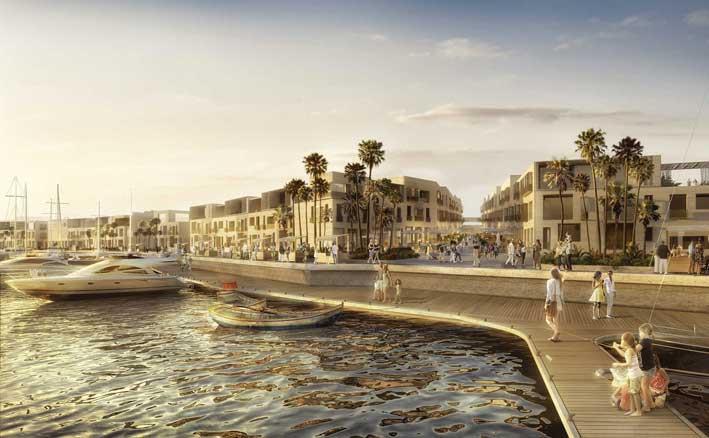
The development was not without its controversy. In September 2016, activists from the Kamp Emergenza Ambjent, joined by Borg Manche, cut through a fence and broke open a gate that was blocking public access to the foreshore at Manoel Island. The local council had also initiated legal proceedings against the MIDI consortium, saying that it was breaching its contract terms by barring public access to the foreshore.
The group behind the activism, ‘Friends of Manoel Island’, would form the basis of the creation of the foundation.
Asked as to how the company decided on the final project given the circumstances, Portelli said that MIDI began to focus on the development in the last 24 months, following the full completion of Tigne Point, with a revised master plan being submitted to the Planning Authority last November.

“It is a refined version of the original master plan, which takes into account contemporary needs and style. The residential units will be combined with public space to create a community environment that is largely built around the marina,” he said.
The revised Masterplan is still being considered by the PA, and the company is currently preparing an Environmental Impact Assessment for the ERA.